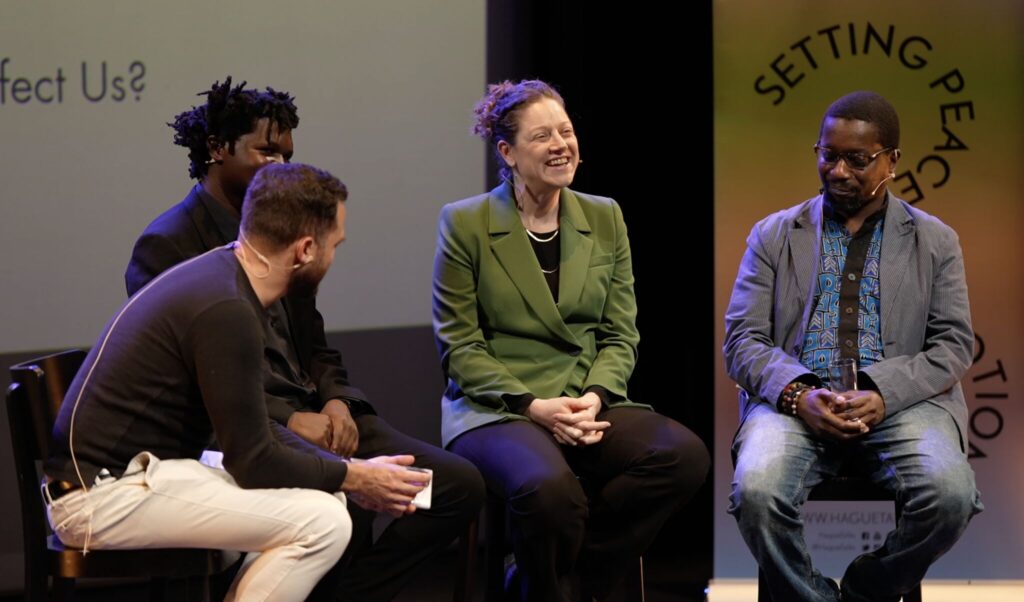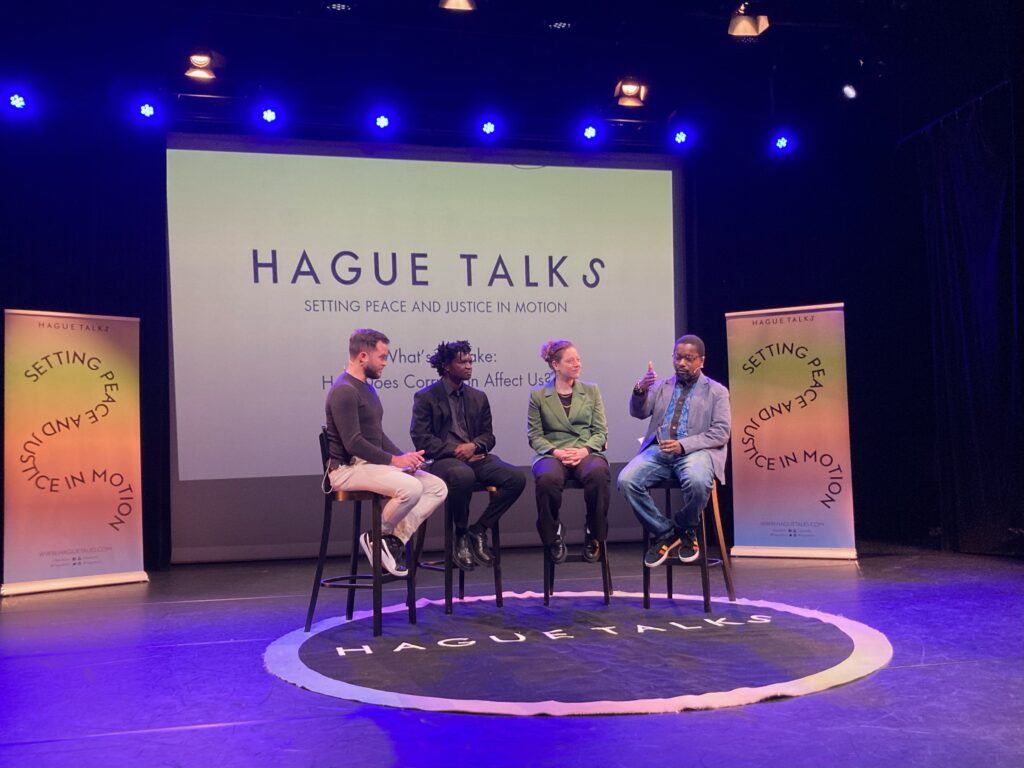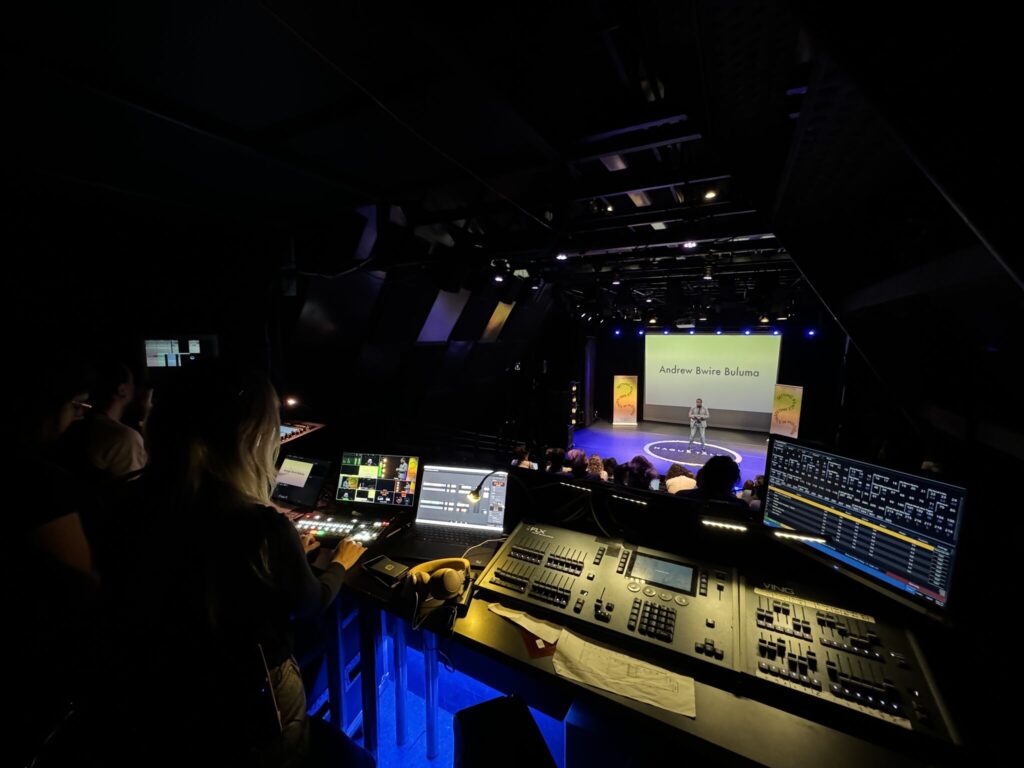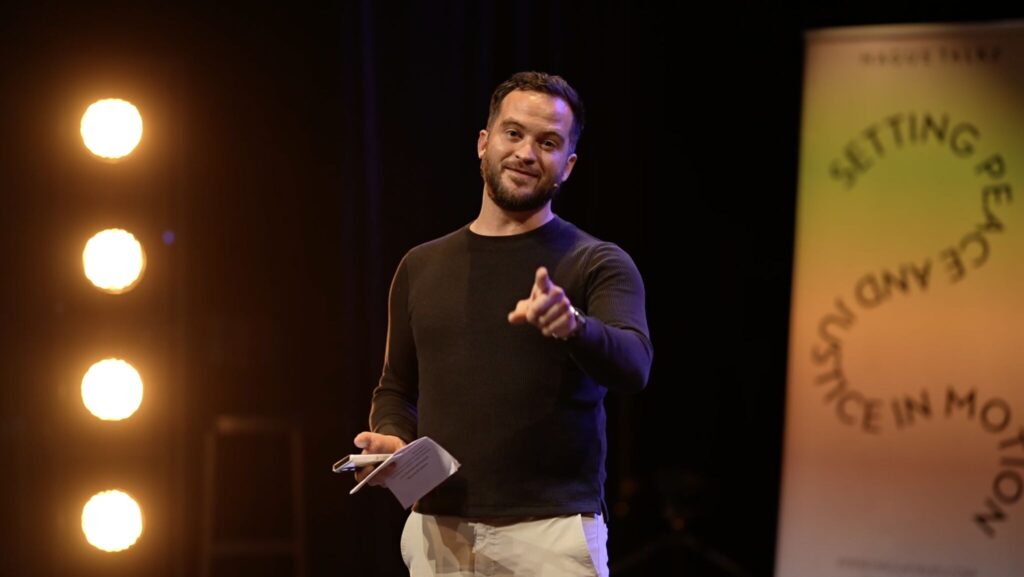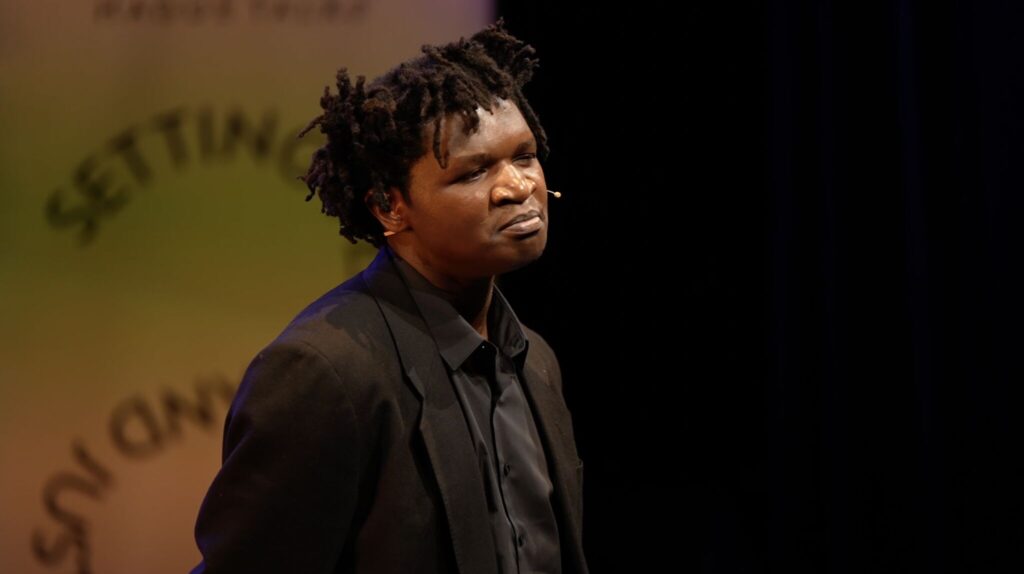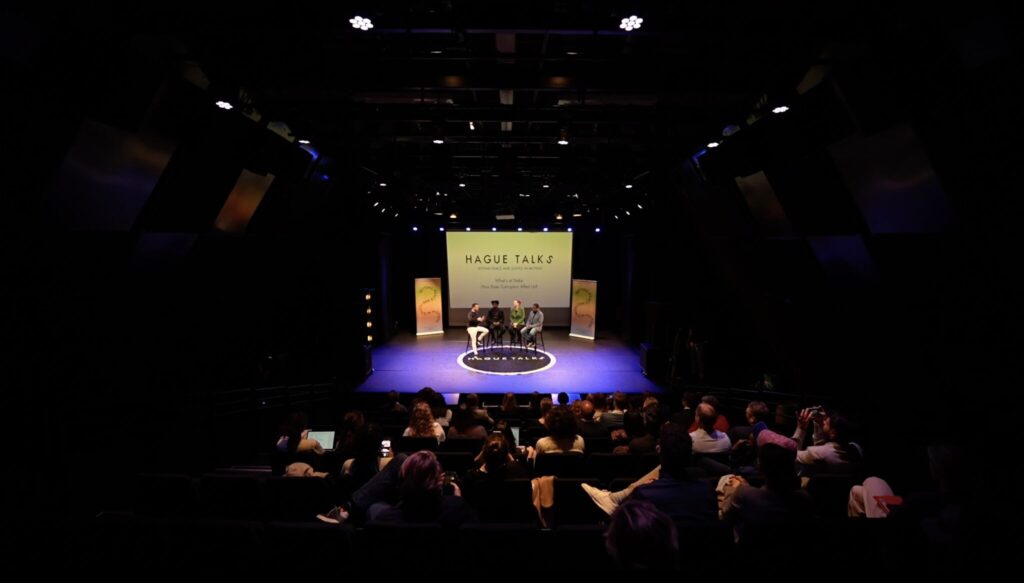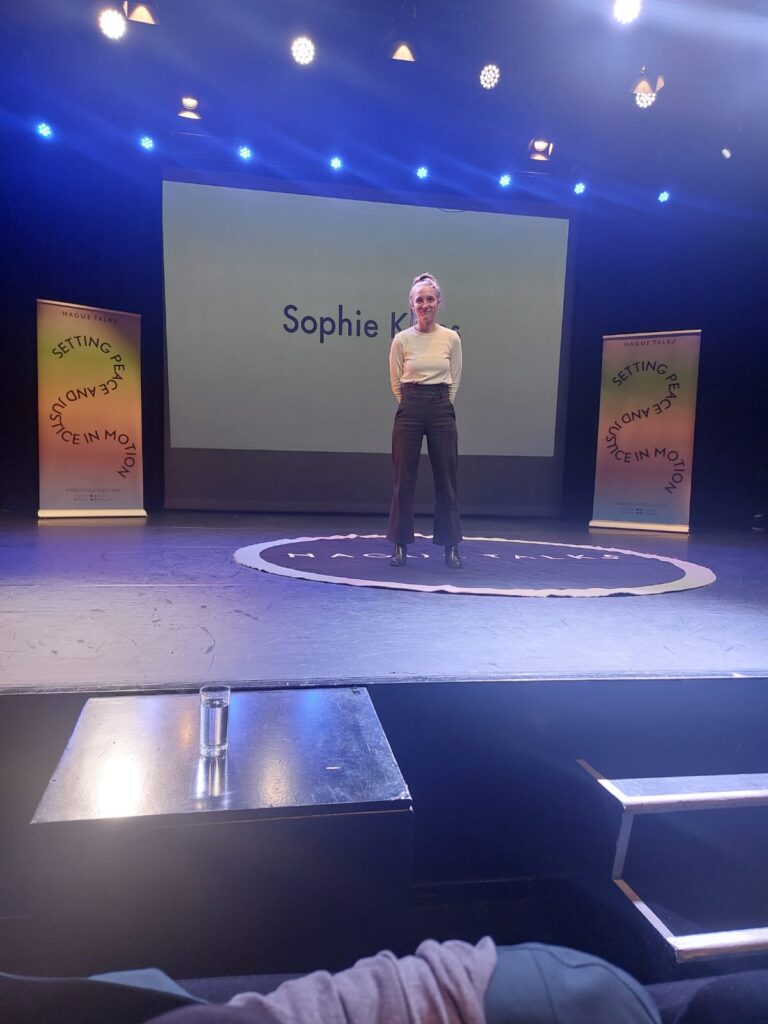5 Things We Learned About Corruption at the Hague Talks
By Sophie Kloos
The HagueTalks is a series of events about peace and justice that aims to stimulate dialogue and spark concrete action. We were pleased to partner with The Hague Humanity Hub to co-organise and participate in the October 2024 edition of the event, which marked a milestone—its 10th anniversary. This edition was centred around the topic of corruption, with a focus on the campaign for the establishment of an International Anti-Corruption Court (IACC). The discussion brought together experts to explore corruption’s pervasive impact and actionable solutions. Here are five key takeaways from the event:
“More than the financial cost, it is the human cost that is severe. When corruption is pervasive citizens lose trust in the fairness of institutions around them. They feel remote from political decision-making and from those who govern them.”
– Sophie Kloos
1. Corruption Undermines Trusting Democracy
Sophie Kloos, Managing Director of Integrity Initiatives International Europe (III Europe), emphasised that corruption erodes the foundation of democratic systems. When public funds are misused or political decisions are influenced by bribes, citizens lose trust in institutions and feel alienated from political processes. Beyond financial costs, the human impact is profound as communities lose faith in fairness and justice. Kloos highlighted the importance of the global anti-corruption movement, including the importance of investigative journalism and the promotion of transparency to restore integrity.
“For this ambitious project to succeed, we need all of you – citizens of the world – to share the idea, support it, be part of the campaign, and push your government to establish the International Anti-Corruption Court.”
– Inbal Djalovski
2. The International Anti-Corruption Court: A Bold Vision
Former Prosecution Lawyer of the International Criminal Court Inbal Djalovski introduced the IACC as a mechanism to address cross-border corruption and prosecute high-ranking officials when national systems fail. In addition to investigating and prosecuting, the court would also aim to recover stolen assets and compensate victims. Djalovski noted that for the IACC to succeed, global citizens must advocate for its establishment and hold governments accountable. Learning from the International Criminal Court’s successes and challenges will ensure the initiative is not just theoretical but transformative. The International Criminal Court itself does not have jurisdiction over corruption-related crimes.
“I go to places where many journalists do not go… and I sit with people who are victims of corruption and ask them to tell me their stories… . Corruption isn’t just about money. It’s about people’s lives – it’s about communities that are forgotten and voices that are silenced.”
– Cebelihle Mbuyisa
3. Corruption’s Human CostIs Deeply Personal
Investigative journalist Cebelihle Mbuyisa brought a powerful, human-centered perspective to the discussion. Drawing from personal stories in Eswatini, Mbuyisa highlighted how corruption silences marginalised communities and deprives them of justice. For many, corruption isn’t just about stolen money—it’s about stolen opportunities and lives. While reporting these stories has a global impact, Mbuyisa described the personal risk involved, underscoring the courage required to expose systemic wrongs.
“We all have a role to play in the fight against corruption. Let us play it well.”
– Dr. Andrew Bwire Buluma
4. Preventive and Punitive Actions are Needed
Dr. Andrew Bwire Buluma of the International Development Law Organisation likened corruption to a “malignant disease” that constantly evolves to resist anti-corruption efforts. This metaphor illustrates how disruptive the effect of corruption can be. Like many diseases, corruption also disproportionately impacts the most vulnerable. Dr. Buluma called for both preventive measures—like education and transparency—and punitive actions to break the cycle of corruption, alongside empowering communities to recognise and resist unethical practices.
5. Public Engagement Is Crucial
A recurring theme throughout the event was the importance of citizen participation. From demanding transparency in governance to supporting bold initiatives like the IACC, the fight against corruption requires a united global effort. Public awareness and advocacy can amplify pressure on leaders to create and enforce anti-corruption policies. As Dr. Buluma put it, “We all have a role to play in the fight against corruption. Let us play it well. “
The Hague Talks event illuminated not only the challenges posed by corruption but also the inspiring solutions being championed worldwide. From grassroots efforts to international courts, the message was clear: change is possible when individuals and institutions come together to demand accountability and justice.
We want to thank The Hague Humanity Hub for co-organizing this event, and all speakers for their fascinating and inspiring contributions.
Do you feel inspired to contribute to the fight against corruption? Sign up to our newsletter stay updated on the campaign to establish the IACC and how you can get involved.
Published on 4th November 2024
Photos by Holland Park Media
